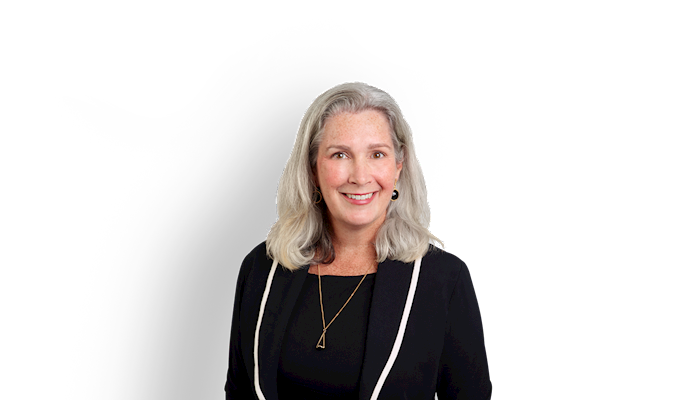Amendments to the Medical Assistance in Dying (MAiD) legislation, introduced through Bill C-7, received royal assent on March 17, 2021.
Following the introduction of MAiD in Canada in 2016, cases were brought challenging the “reasonable foreseeability of natural death” eligibility criterion in section 241.2(2) of the Criminal Code. Bill C-7 was introduced in response to Truchon v. Attorney General of Canada, a decision of the Superior Court of Québec that the reasonable foreseeability of natural death criterion contravened the right to life under section 7 of the Charter of Rights and Freedoms. The court made this decision in light of evidence that otherwise, individuals meeting all other criteria including intolerable suffering might be led to put an end to their lives by other less dignified means, prematurely.
The amendments came into force on March 17, 2021. The law retains the former eligibility criteria, but reduces existing procedural safeguards for persons whose natural death is reasonably foreseeable and introduces new and stricter safeguards for eligible persons whose death is not reasonably foreseeable.
It is already recognized by courts and experts that a person does not need to have a diagnosis of a terminal or fatal condition for their death to be reasonably foreseeable, but rather, taking into account the totality of their circumstances, be on a predictable trajectory toward death.
Eligibility Requirements
The law remains that to be eligible, a person must be an adult, capable of making decisions with respect to their health, and suffering from a grievous and irremediable medical condition, defined as follows:
- having a serious and incurable illness, disease or disability;
- being in an advanced state of irreversible decline in capability; and,
- experiencing physical or psychological suffering that is intolerable to them and that cannot be relieved under conditions that they consider acceptable.
For now, the legislation specifies that a mental illness is not considered to be an illness, disease or disability for the purpose of the eligibility requirements, however, this provision is to be repealed in two years, with further expert input to occur in the meantime (see below regarding future developments). This does not mean that a person with a mental illness cannot be provided with MAiD, only that they must have another illness, disease or disability in addition to be eligible, and of course, be capable of providing the necessary informed consent. Previously, it was the requirement that a person’s natural death be reasonably foreseeable that served to exclude persons with only a mental and not physical illness.
The person needs to have made a voluntary request for MAiD and given informed consent to receive MAiD after being advised of the means available to relieve their suffering.
Procedural Requirements
The legislation introduces different procedural requirements for persons whose natural death is reasonably foreseeable and for those whose natural death is not reasonably foreseeable. However, in all cases, the request for MAiD is to be made in writing and signed by one independent witness, a change from the previous requirement for two witnesses, and made after the person is informed that they have a grievous and irremediable medical condition. Also, it is no longer the case that the independent witness cannot be directly involved in the provision of health care or personal care services to the individual, as long as this is their primary occupation for which they are paid. This means that a staff member who is a direct caregiver (such as a personal support worker or a bedside nurse) is no longer prohibited from being that witness. This change is aimed at ensuring that the need for an independent witness (usually a close friend) is not a barrier to access to MAiD, particularly during these times when there are visitor restrictions in hospitals and congregant care facilities. We recommend that policies neither expect nor forbid a nurse or other employees from acting as a witness.
The person must be informed of the means available to relieve their suffering (e.g. palliative care), and for those whose death is not reasonably foreseeable, where appropriate, offered consultations with relevant professionals who provide counselling, mental health and disability support and community services. The practitioners conducting the assessment must agree the person has given serious consideration to the available and reasonable means to relieve the person’s suffering.
For those whose natural death is reasonably foreseeable, two independent physicians or nurse practitioners provide an assessment and confirm that all eligibility requirements have been met. The person is then informed that they can withdraw their request at any time, in any manner. The previous requirement for a 10-day waiting period between the request and receiving MAiD has been removed. It was felt that most individuals nearing death assessed as eligible were already well-settled in their decision and this waiting period served only to unnecessarily prolong suffering. It does not mean that there cannot be a waiting period where appropriate, just that it is not mandatory.
There are expanded timelines, however, for those whose natural death is not reasonably foreseeable. If neither of the two practitioners who provide the assessment has expertise in the medical condition that is causing the person’s suffering, a third practitioner who does have expertise must be consulted and the results shared with the assessing practitioners. The thinking is that such a specialist will be able to elucidate the nature of the person’s condition, its course, its grievousness, its irremediability, and options to address the suffering, tried and untried. Such consultant specialists do not have to be MAiD assessors or providers, simply consultants to those that are, with the hope that this may mitigate against any hesitancy on the part of such specialists. There must be at least 90 clear days between the request and the provision of MAiD, however, this period can be shortened if the person’s loss of capacity to provide consent is imminent.
In both circumstances, the person must be given an opportunity to withdraw consent and is required to expressly confirm their consent immediately before receiving MAiD, with one exception. The amendments introduce a mechanism to waive this final consent for those whose natural death is reasonably foreseeable. If a person meets all of the eligibility and procedural requirements, and is informed by their practitioners of the risk they may lose capacity to consent to receiving MAiD, they may enter into an agreement in writing with the physician or nurse practitioner that the physician or nurse practitioner will administer MAiD on a specified day and give consent to the administration of MAiD even if they lose their capacity to consent to receiving MAiD prior to that day. While not specified in the legislation, it is presumed that this agreed upon day can be amended in writing to adjust to circumstances going forward. If the person does lose capacity to consent and the person does not demonstrate refusal by words, sounds or gestures to have the substance administered, then MAiD can be provided in accordance with the prior agreement despite the loss of capacity to express the final consent.
Advance consent for MAiD is also now permitted where the person will self-administer the substance to cause their own death. There can be a written agreement between the provider and patient that if the person self-administers, does not die within a specified period of time, and loses capacity to consent, the physician or nurse practitioner can proceed to administer a second substance to complete the process. Self-administration has been a very rare modality in Canada to date, and it is felt that this provision may remove some this hesitancy.
Reporting Requirements
Bill C-7 expanded the reporting requirements such that any person with responsibility to carry out preliminary assessments must report all cases in which an assessment takes place, not just completed medically assisted deaths. Pharmacists and pharmacy technicians must also report when a substance is dispensed in connection with the provision of MAiD. It is thought that this “upstream” data will allow for a fuller picture of issues around eligibility and access, if any. The Minister of Health’s regulation-making power has also been expanded to include data collection related to race, Indigenous identity and disability and, to seek to determine the presence of individual or system inequality or disadvantage in the context of or delivery of MAiD.
Future Developments
These amendments are likely not the end of developments to the MAiD law in Canada. Bill C-7 requires an expert review be initiated to consider protocols, guidance and safeguards for MAiD for persons suffering from mental illness. The expert review is to make recommendations within the next year. A parliamentary review is also to be commenced within the next 30 days to consider the application of provisions of the MAiD law to issues relating to mature minors, advanced requests, mental illness, the state of palliative care in Canada and the protection of Canadians with disabilities.




